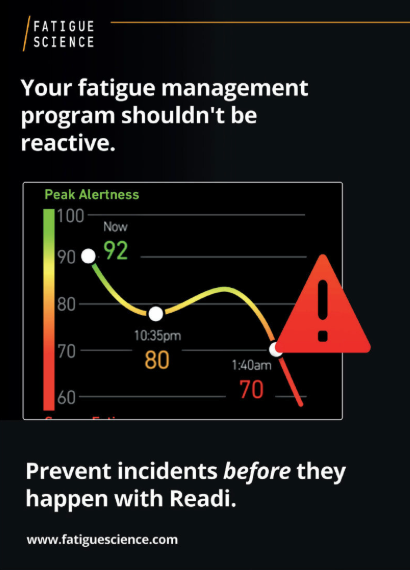A newly released coroners report of a 2010 ambulance crash on Vancouver Island, BC in which two paramedics were killed has affirmed the long-held belief that fatigue was a factor and that the driver had likely fallen asleep at the wheel.
Both the driver, who was known to be safety focused and conscientious about fatigue, and her partner had been called in to transport a patient at 1:29 AM, only five hours after completing their previous shift.
Fatigue Science co-founder, Pat Byrne, spoke with Global BC news this week to share his thoughts about the unfortunate realities of worker fatigue.
Pat tells Global News that fatigue not only impairs our ability to operate safely but also our ability to actually self-judge just how tired we really are.
Based on our own FAST (Fatigue Avoidance Scheduling Tool) analysis of the paramedics’ schedule leading up to the accident, it is not surprising that fatigue was determined to be a factor. FAST is able to demonstrate that at the time of the accident, the driver was likely 34% slower to react and over 4 times more likely to suffer a microsleep than someone who was sufficiently rested. What is surprising, however, is the lack of recommendations from the BC Ambulance Service around the subject of fatigue, as referenced in the coroner’s final report, which focuses mostly on road hazards specific to the stretch of highway where the accident occurred.




